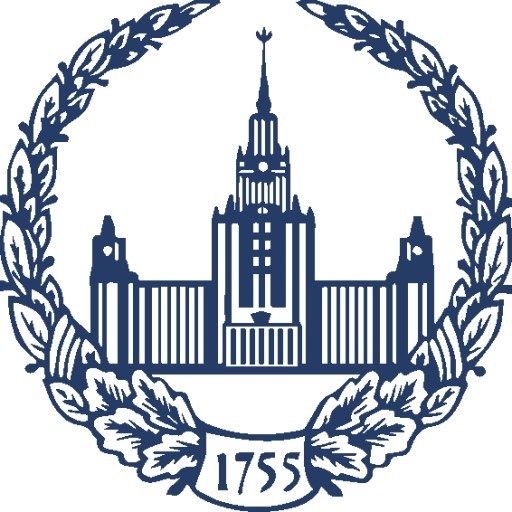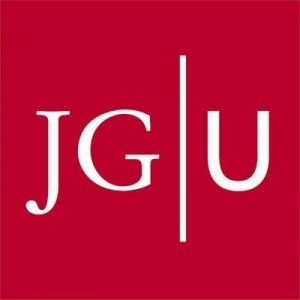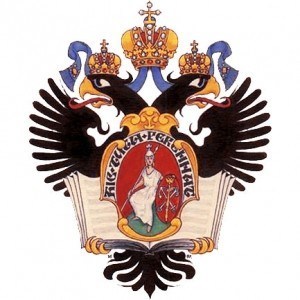Photos of university / #official_msu
The Bachelor's degree in International Economics at Lomonosov Moscow State University offers a comprehensive educational program designed to prepare students for a successful career in the global economic environment. The program provides in-depth knowledge of international trade, finance, economic policy, and globalization processes, enabling graduates to analyze complex economic phenomena and make informed decisions within international contexts. Students will develop a solid foundation in microeconomics, macroeconomics, econometrics, and economic theory, complemented by specialized courses in international economic relations, global markets, and economic diplomacy. Emphasis is placed on understanding the economic mechanisms that drive international cooperation and competition, as well as the policies that influence global economic stability and growth. The curriculum incorporates modern analytical tools, data analysis skills, and language proficiency in English and other foreign languages, ensuring students are well-equipped to operate in multicultural and international teams. Practical training through internships, case studies, and research projects prepares students to face real-world challenges. The program also promotes critical thinking, analytical skills, and ethical considerations in economic decision-making. Graduates of the International Economics program can pursue careers in government agencies, international organizations, multinational corporations, consultancy firms, and research institutions. They are equipped to work as economic analysts, policy advisors, diplomatic officials, or specialists in international trade negotiations. The program’s faculty comprises renowned experts in international economics, providing students with mentorship and insights into contemporary global issues. Overall, the Bachelor's in International Economics at MSU aims to cultivate versatile, globally-minded professionals capable of contributing to economic development and international cooperation in Russia and beyond.
The International Economics program at Lomonosov Moscow State University provides students with comprehensive knowledge and practical skills required to analyze, understand, and influence global economic processes. This interdisciplinary program combines core principles of economics with an in-depth focus on international trade, finance, economic policy, and global markets, preparing graduates to operate effectively in a rapidly changing global environment. Students will explore key topics such as international monetary systems, trade policies, economic integration, and the impact of global financial institutions. The curriculum is designed to develop analytical thinking, data analysis skills, and a deep understanding of economic theories as they apply to real-world international contexts.
Throughout the program, students will engage in coursework that covers microeconomics and macroeconomics, quantitative methods, economic development, and sector-specific studies like international banking and taxation. Special attention is given to the economic relations of Russia with other countries, allowing students to analyze regional economic patterns and international cooperation issues relevant to Russia’s position in the world economy. In addition, students are encouraged to enhance their language skills, particularly in English and other major languages of international trade, to prepare for effective communication in multicultural environments.
The program also emphasizes practical training through internships, project work, and case studies, enabling students to apply theoretical knowledge to real-world economic problems. Collaboration with international organizations, government agencies, financial institutions, and businesses provides invaluable opportunities for students to gain firsthand experience and establish professional networks. Graduates of this program will be well-equipped for careers in international economic analysis, policy advising, banking, consultancy, or further academic research. The program aims to produce economists who are globally-minded, culturally aware, and capable of contributing to Russia's integration into the global economy while maintaining a strong national perspective.
The Bachelor’s degree program in Economics with a focus on International Economics at Lomonosov Moscow State University requires applicants to have completed secondary education and meet the university's entrance criteria, including proficiency in the Russian language and, for international students, proof of English language proficiency such as TOEFL or IELTS scores. The program is designed to provide students with a comprehensive understanding of economic theories, international trade, global financial systems, and the economic relations of Russia with other countries.
Admission involves submission of an application form, academic transcripts, a motivation letter, and standardized test results if applicable. Once admitted, students undertake a curriculum that typically spans four years, including core courses, electives, and practical training modules. The core curriculum covers microeconomics, macroeconomics, mathematics for economists, statistics, and econometrics, ensuring a strong analytical foundation. Specialized courses in international economics include international trade theories, monetary and fiscal policy, foreign exchange markets, and the economic integration of Russia with global institutions.
Students are also encouraged to participate in internships and research projects that foster practical understanding of international economic issues, policies, and negotiations. The program emphasizes developing skills in economic analysis, modeling, and data interpretation, preparing graduates for careers in governmental agencies, international organizations, research institutes, and private sector companies involved in international business and finance. Graduates are expected to demonstrate both theoretical knowledge and practical competencies, including the ability to analyze global economic phenomena, assess risks and opportunities, and contribute to policy formulation. Throughout the program, students have access to modern classrooms, library resources, and opportunities for international exchange, aligning with the university’s commitment to academic excellence and global engagement.
Financing for the Economics (International Economics: Case of Russia) program at Lomonosov Moscow State University is primarily provided through a combination of government funding, university allocations, and potentially additional sources such as scholarships and grants. The program is designed to offer accessible education opportunities for both domestic and international students, with funding structures reflecting Russia’s commitment to high-quality higher education.
The government of Russia allocates substantial funding to support key university programs, including economics, aiming to promote academic excellence and international competitiveness. University funds are used to cover salaries for faculty members, instructional materials, infrastructure maintenance, and research activities associated with the program. Tuition fees are set according to university policies and may vary between contract and scholarship students. For Russian citizens, tuition may be subsidized through state allocations, whereas international students often pay higher, tuition-based fees.
External funding sources also play a significant role in supporting students and research initiatives. Scholarship programs, both governmental and private, are available for talented students in economics, helping to reduce financial barriers and incentivize academic achievement. The Russian government offers various governmental scholarships for international students, which may include financial support for tuition, accommodation, and living expenses, depending on the specific scholarship program.
The program encourages research and international cooperation, possibly providing opportunities for students and faculty to access research grants, subsidies, and project funding geared towards economic development and international economic policies. Such funding supports not only academic pursuits but also internships, conferences, and exchange programs, enriching the educational experience.
Overall, financial support for the Economics (International Economics: Case of Russia) program is a comprehensive system combining public funding, university resources, and scholarships, aimed at fostering an inclusive, high-quality academic environment. This multi-source financing approach ensures the sustainability of the program while providing diverse financial assistance options for students.
The Bachelor's degree program in Economics with a specialization in International Economics at Lomonosov Moscow State University is designed to prepare students for a successful career in the global economic environment. The program offers a comprehensive curriculum that combines rigorous theoretical foundations with practical skills tailored to the complexities of international economic relations. Students will study core economic disciplines such as microeconomics, macroeconomics, and econometrics, alongside specialized courses focused on international trade, international finance, globalization processes, and economic policy analysis.
The program emphasizes analytical thinking, data analysis, and decision-making skills, equipping graduates to navigate and influence international markets and economic policies. Students have the opportunity to learn from renowned faculty members who are experts in economic theory, international economics, and related fields. The curriculum includes opportunities for engagement with real-world issues through case studies, internships, and project work, often in collaboration with governmental agencies, international organizations, and private sector companies.
Lomonosov Moscow State University fosters a multicultural academic environment, allowing students to develop a global perspective and cross-cultural communication skills. The program also offers opportunities for language acquisition and intercultural dialogue, which are essential for a career in international economics. Graduates of this program typically pursue careers in governmental bodies, international organizations, consulting firms, and multinational corporations, or continue their studies at the master's and doctoral levels.
Overall, the program aims to produce well-rounded economists who can analyze economic phenomena, formulate policies, and make decisions considering the geopolitical and economic context of Russia and the wider world. Emphasis is placed on aligning the curriculum with global standards, ensuring that graduates possess the necessary competencies to operate effectively in international economic environments and contribute to Russia's integration into the global economy.








